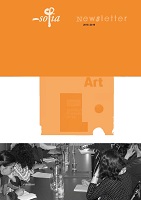
CAS Newsletter 2015/2016
Articles, pictures and interviews can be reprinted only with the consent of Centre for Advanced Study Sofia (CAS - Sofia). Any citations should be duly acknowledged.
More...We kindly inform you that, as long as the subject affiliation of our 300.000+ articles is in progress, you might get unsufficient or no results on your third level or second level search. In this case, please broaden your search criteria.

Articles, pictures and interviews can be reprinted only with the consent of Centre for Advanced Study Sofia (CAS - Sofia). Any citations should be duly acknowledged.
More...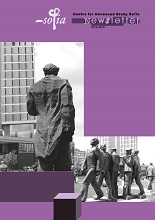
Articles, pictures and interviews can be reprinted only with the consent of Centre for Advanced Study Sofia (CAS - Sofia). Any citations should be duly acknowledged.
More...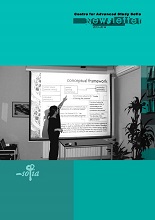
Articles, pictures and interviews can be reprinted only with the consent of Centre for Advanced Study Sofia (CAS - Sofia). Any citations should be duly acknowledged.
More...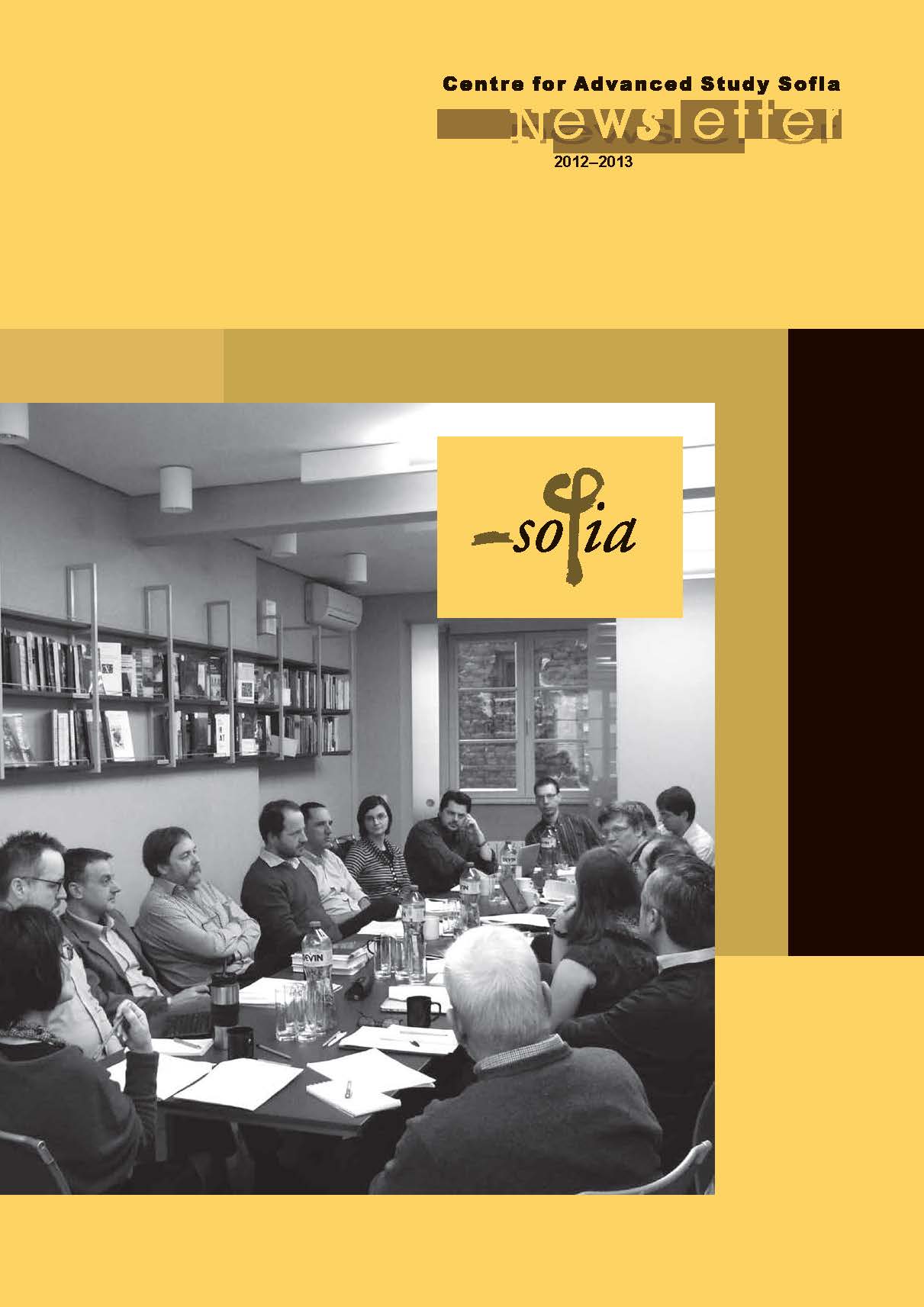
Articles, pictures and interviews can be reprinted only with the consent of Centre for Advanced Study Sofia (CAS - Sofia). Any citations should be duly acknowledged.
More...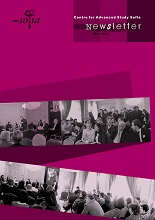
Articles, pictures and interviews can be reprinted only with the consent of Centre for Advanced Study Sofia (CAS - Sofia). Any citations should be duly acknowledged.
More...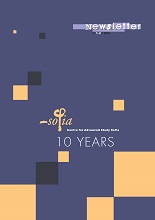
Articles, pictures and interviews can be reprinted only with the consent of Centre for Advanced Study Sofia (CAS - Sofia). Any citations should be duly acknowledged.
More...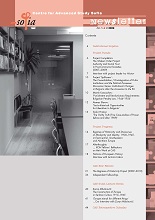
Articles, pictures and interviews can be reprinted only with the consent of Centre for Advanced Study Sofia (CAS - Sofia). Any citations should be duly acknowledged.
More...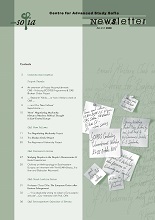
Articles, pictures and interviews can be reprinted only with the consent of Centre for Advanced Study Sofia (CAS - Sofia). Any citations should be duly acknowledged.
More...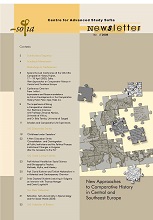
Articles, pictures and interviews can be reprinted only with the consent of Centre for Advanced Study Sofia (CAS - Sofia). Any citations should be duly acknowledged.
More...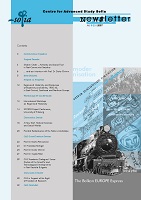
Articles, pictures and interviews can be reprinted only with the consent of Centre for Advanced Study Sofia (CAS - Sofia). Any citations should be duly acknowledged.
More...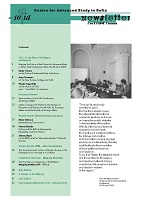
Articles, pictures and interviews can be reprinted only with the consent of Centre for Advanced Study Sofia (CAS - Sofia). Any citations should be duly acknowledged.
More...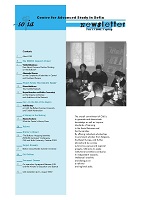
Articles, pictures and interviews can be reprinted only with the consent of Centre for Advanced Study Sofia (CAS - Sofia). Any citations should be duly acknowledged.
More...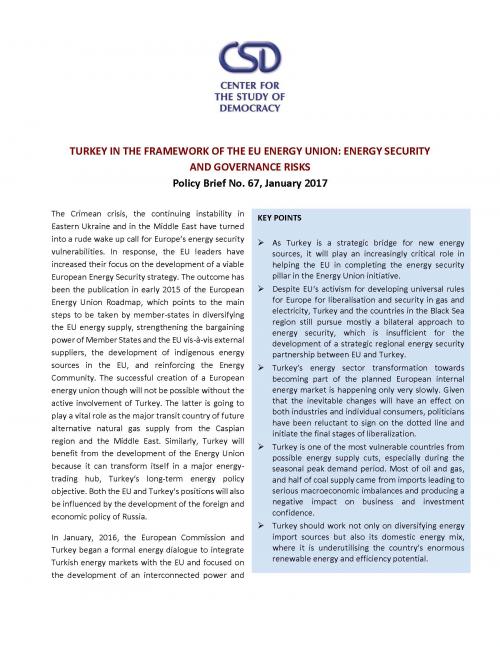
The successful creation of a European energy union will not be possible without the active involvement of Turkey. The latter is going to play a vital role as the major transit country of future alternative natural gas supply from the Caspian region and the Middle East. Similarly, Turkey will benefit from the development of the Energy Union because it can transform itself in a major energy-trading hub, Turkey’s long-term energy policy objective. The EU and Turkey also share a common objective to diminish their dependence on Russian energy imports, which could provide a necessary boost to the formal energy dialogue between the two partners in January 2016.
More...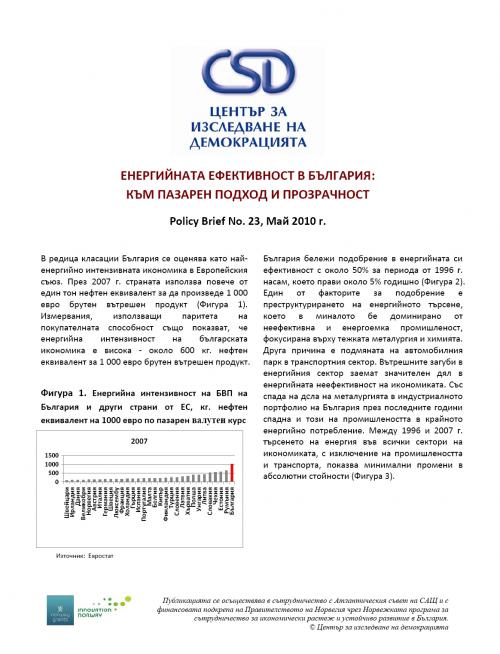
Measured by using market currency exchange rates, Bulgaria has consistently ranked as the most energy intensive economy in the EU: in 2007, it used over a ton of oil equivalent to produce 1,000 Euro worth of gross product. Measured by using purchasing power parity, Bulgaria’s energy intensity is still dismal, around 600 kg of oil equivalent per 1,000 Euro of product. Even though still negligible by any standard, Bulgaria’s energy efficiency has actually improved by about 50% since 1996 and has been on an uninterrupted path to a change for the better by about 5% per year. Overall, the Bulgarian economy seems to have completed the transition from heavy industry to less energy intensive light industry and thus already picked the low hanging fruit of natural gains in efficiency. The country is probably at a point, as some experts argue, from which onwards any additional gain in efficiency will have to be attained through advances in technologies of energy production, conversion, transportation, and use which will call for cost-effective approach and a strong incentive system.
More...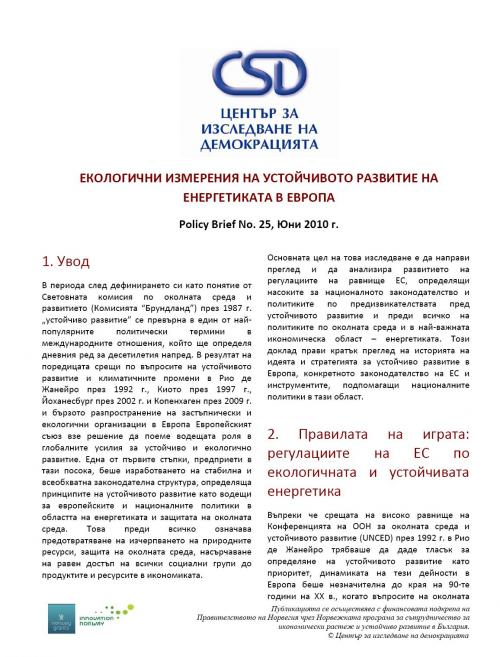
Main purpose of this study is to review and discuss the development of regulation at EU level to guide corresponding national legislation and policies designed to address the challenges of sustainable development, notably those on the environment dimension and as regards to the most relevant economic sector – energy. The paper will briefly examine the development of the idea and strategy for sustainable development in Europe over time, the concrete EU legislation and instruments to facilitate national policies to support such development.
More...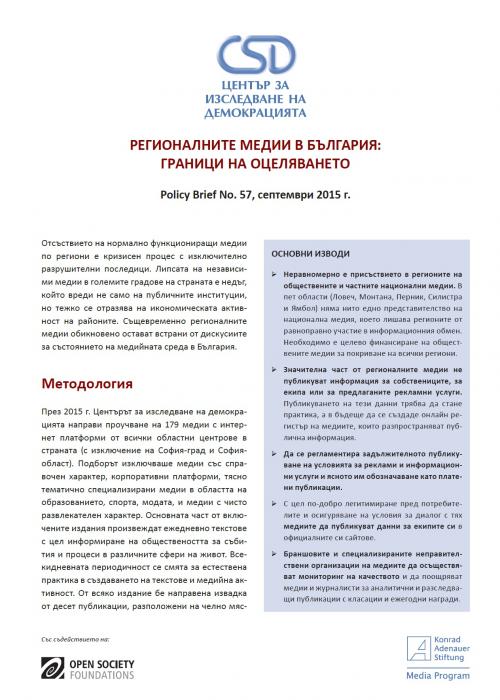
The lack of adequate local media is a trend with devastating implications for the regions of Bulgaria. It affects not only the local public institutions; regional economic activity is also hindered by the absence of independent media. At the same time, when discussing the state of media in Bulgaria, the problems of local media are often overlooked. The current publication presents the results of a survey of 179 local media with internet presence. The analysis focused on the mechanisms and factors that prevent journalists and the media from informing the public in an objective, competent, and comprehensive way.
More...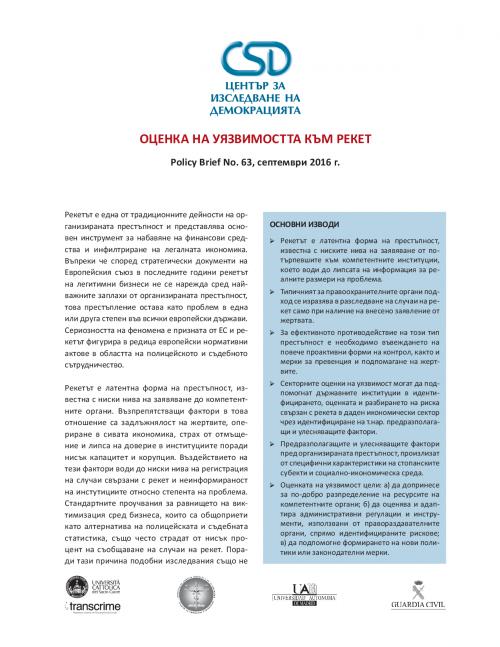
Extortion racketeering has long been pointed out as the defining activity of organised crime. It has also been identified as one of the most effective tools used by organised crime in the accumulation of financial resources and the penetration of the legal economy. Although in recent years this crime has not been among the top listed organised crime threats in the strategic EU policy documents, it still remains ever present in European countries. The seriousness of the phenomenon has been recognised at the EU level and the crime has been listed in a number of EU legal acts in the field of police and judicial cooperation in criminal matters.
More...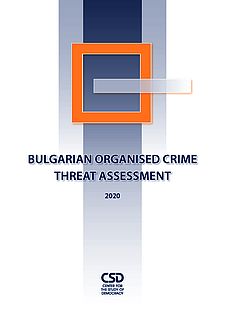
The 2020 Bulgarian Organised Crime Threat Assessment is the third in a series of studies which, on an annual basis, canvasses the state, volume and structure of the major criminal markets. The report also captures the trends related to organised crime over the period 2017–2019.
More...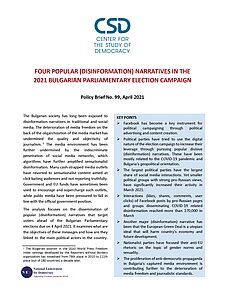
The Bulgarian society has long been exposed to disinformation narratives in traditional and social media. The deterioration of media freedom on the back of the oligarchization of the media market has undermined the quality and objectivity of journalism. The media environment has been further undermined by the indiscriminate penetration of social media networks, which algorithms have further amplified sensationalist disinformation. This policy brief zooms in on the prevalence and connections to the pre-election campaign of four popular (disinformation) narratives related to conspiracy theories about COVID-19, to the support of the large Russian energy projects, the opposition to the European Green Deal and the growing anti-EU sentiments in the Bulgarian society.
More...
In light of the ambitious targets for long term decarbonisation set by the European Green Deal, a critical question for decision-makers is how to sustain a coal phase-out that is as swift as possible while also ensuring security of supply, affordable electricity, and a just transition in regions dependent on coal. The aim of this report is to support decision makers in Bulgaria, Greece and Romania to implement a timely phase-out of coal by analysing the impact on electricity systems as well as the local economy, and highlighting policy recommendations to deal with potential issues related to compensation, system security and local economic impacts.
More...